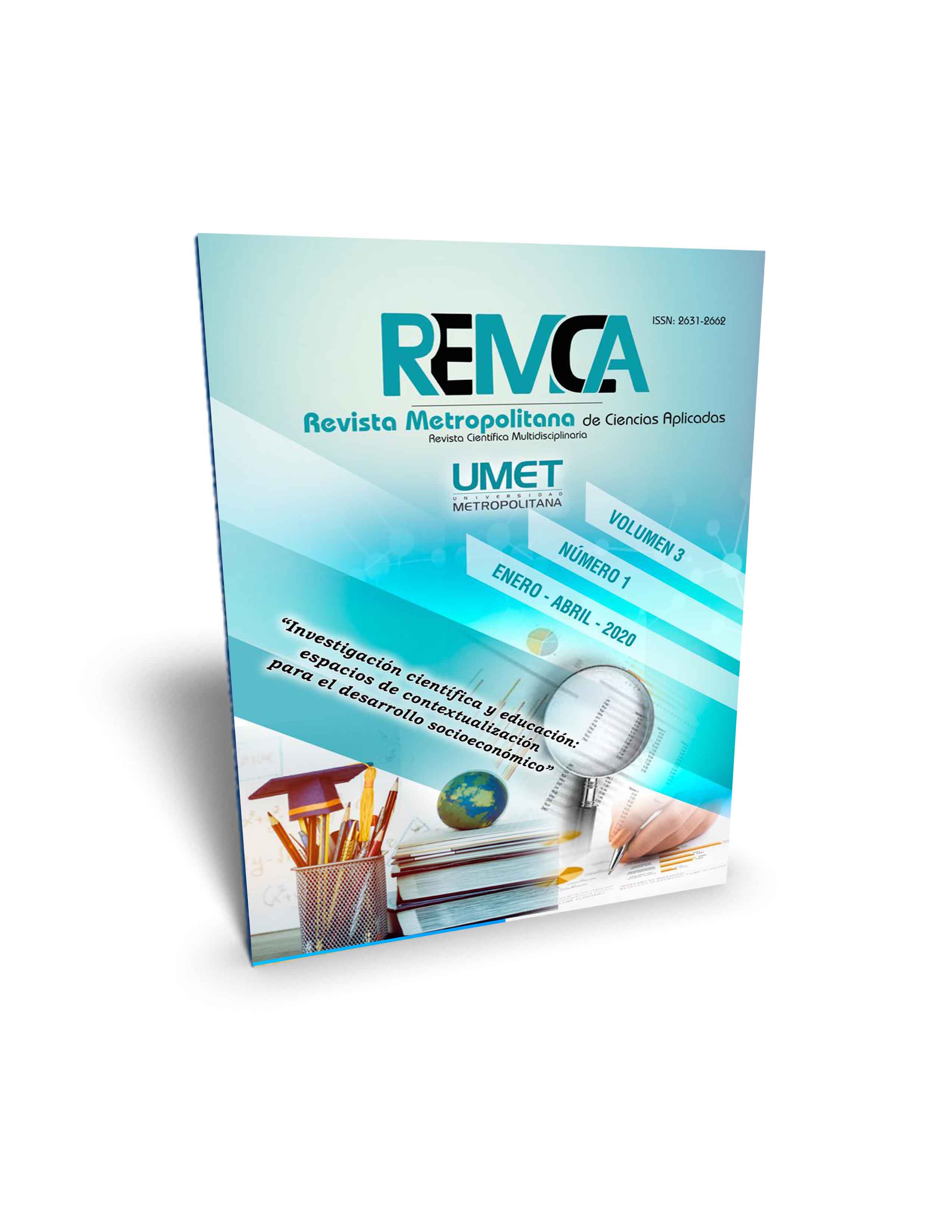Knowledge networks: bases of a methodological alternative for research on environmental sustainability in Ecuador
DOI:
https://doi.org/10.62452/f23dfn03Keywords:
Environmental sustainability, knowledge networks, techno-productive practicesAbstract
The work presented is a result of the research experience of an environmental education project, related to sustainable development, in its environmental educational perspective that researchers from the UMET develop in the province of El Oro, Ecuador. Its objective is to guide the study of knowledge networks, as a methodological perspective for understanding environmental sustainability. The perspective that makes it possible to identify the knowledge networks acquires great relevance in environmental education, since it makes it possible to reconstruct the trajectory of knowledge in the transmission of collective experience, and to establish the links that favor the development of a culture of sustainability, as it enables in scientific research develop an integrated vision of the cultural, political and social factors that contribute to sustainability. The aspects that allow identifying functions, roles, actors and links are established as methodological components of sustainability assessment in defined contexts.
Downloads
References
Acevedo Rodríguez, C., & Morales Calatayud, M. (2019) Comunidades marineras: una perspectiva desde las redes sociales para el desarrollo local. Revista Agroecosistema, 7(1), 75-80.
Coraggio, J. L. (2002). Universidad y desarrollo local. Seminario Internacional La educación superior y las nuevas tendencias. Quito, Ecuador.
Dueñas, R., Morales, M., & Alonso, J. (2016). La universidad en la gestión de los conocimientos tradicionales de comunidades costeras. Estudio de caso. (Ponencia). X Congreso Internacional de Educación Superior Universidad 2016. La Habana, Cuba.
Dueñas, R., Morales, M., & Castellanos, M. E., & Soler, D. (2016). El papel de los saberes tecnoproductivos tradicionales de pesca en el Manejo Integrado de Zonas Costeras. En, R. Y Dueñas, Comunidades costeras de Cienfuegos: experiencias prácticas y saberes tradicionales. Editorial Universo Sur.
Echevarría, J. (1995). Filosofía de la ciencia. Editorial Akal.
Griñan, D., & Muñoz, T. (2012). El proceso de institucionalización de los estudios sociales del trabajo en Cuba como campo científico en el período 1959-2010. La Habana. (Trabajo de diploma). Universidad de La Habana.
Malagón, R., & Barragán Duarte, J. L. (2007). La responsabilidad social es la justificación de la Nacional como Institución: Fals Borda. Carta Universitaria, 28. Universidad Nacional de Colombia.
Morales, M., & Pérez, I. (2010). Indicadores no convencionales de ciencia y tecnología. Articulando el discurso y la práctica para la acción y la transformación. Boletín ILAPIR
Morales, M., Becerra, F., & Padilla, Y. (2008). Desarrollo local. Desafíos al conocimiento y la innovación. En, Gestión del conocimiento tradicional. Experiencias desde la Red GESTCON. Gente Nueva Editorial.
Nowotny, H., Scott, P., & Gibbons, M. (2003). “Mode 2” Revisited: the new Production of Knowledge. Kluwer Academic Publishers. Netehrlands.
Núñez, J., Montalvo, F., & Pérez, I. (2009). Nueva universidad, conocimiento y desarrollo social basado en el conocimiento. I Seminario Nacional del Programa Ramal del Ministerio de Educación Superior. La
Downloads
Published
Issue
Section
License
Copyright (c) 2020 Marianela de la Caridad Morales Calatayud, Roberto Yasiel García Dueñas, Carlos Hernández Morales (Autor/a)

This work is licensed under a Creative Commons Attribution-NonCommercial-ShareAlike 4.0 International License.
Authors who publish in Revista Metropolitana de Ciencias Aplicadas (REMCA), agree to the following terms:
1. Copyright
Authors retain unrestricted copyright to their work. Authors grant the journal the right of first publication. To this end, they assign the journal non-exclusive exploitation rights (reproduction, distribution, public communication, and transformation). Authors may enter into additional agreements for the non-exclusive distribution of the version of the work published in the journal, provided that acknowledgment of its initial publication in this journal is given.
© The authors.
2. License
The articles are published in the journal under the Creative Commons Attribution-NonCommercial-ShareAlike 4.0 International License (CC BY-NC-SA 4.0). The terms can be found at: https://creativecommons.org/licenses/by-nc-sa/4.0/deed.en
This license allows:
- Sharing: Copying and redistributing the material in any medium or format.
- Adapting: Remixing, transforming, and building upon the material.
Under the following terms:
- Attribution: You must give appropriate credit, provide a link to the license, and indicate if any changes were made. You may do this in any reasonable manner, but not in any way that suggests the licensor endorses or sponsors your use.
- NonCommercial: You may not use the material for commercial purposes.
- ShareAlike: If you remix, transform, or build upon the material, you must distribute your creation under the same license as the original work.
There are no additional restrictions. You may not apply legal terms or technological measures that legally restrict others from doing anything the license permits.




